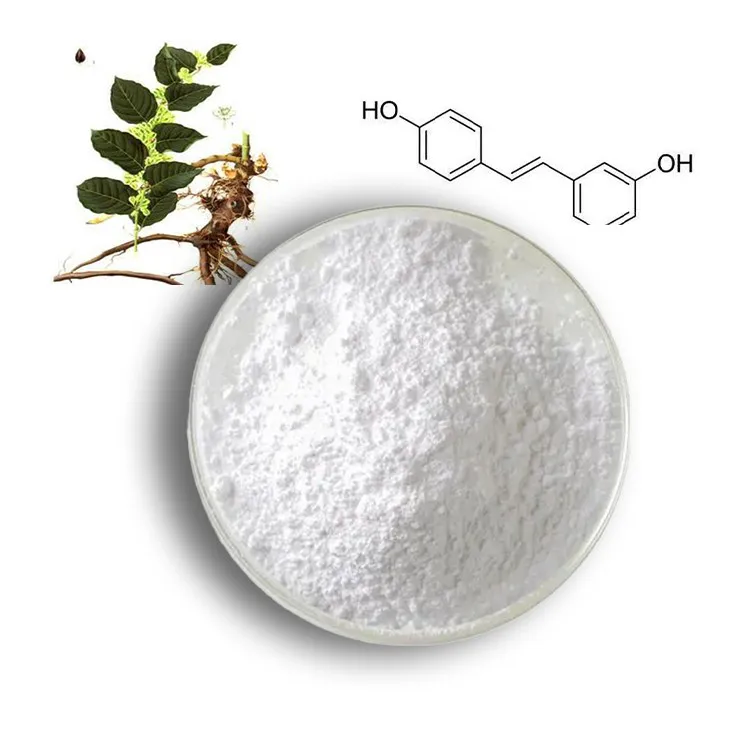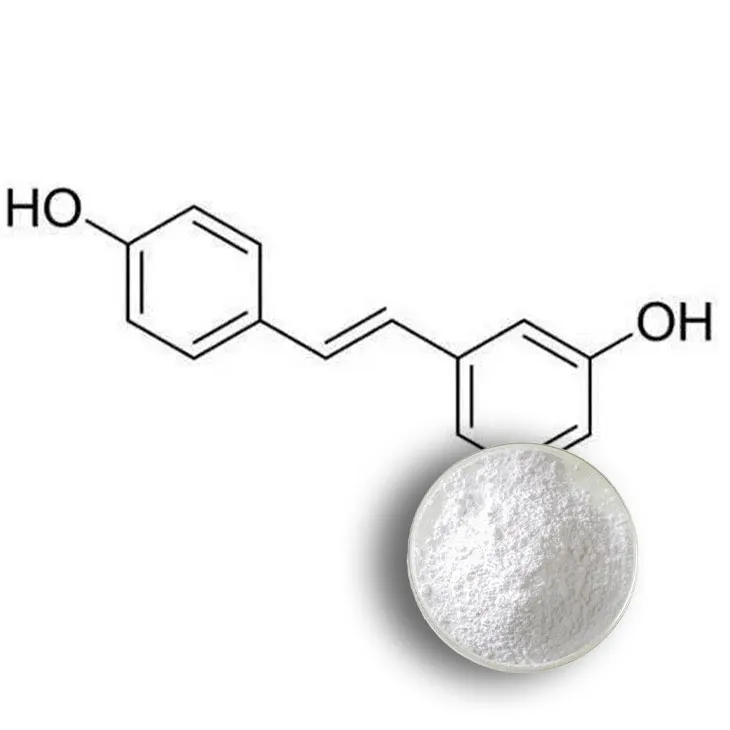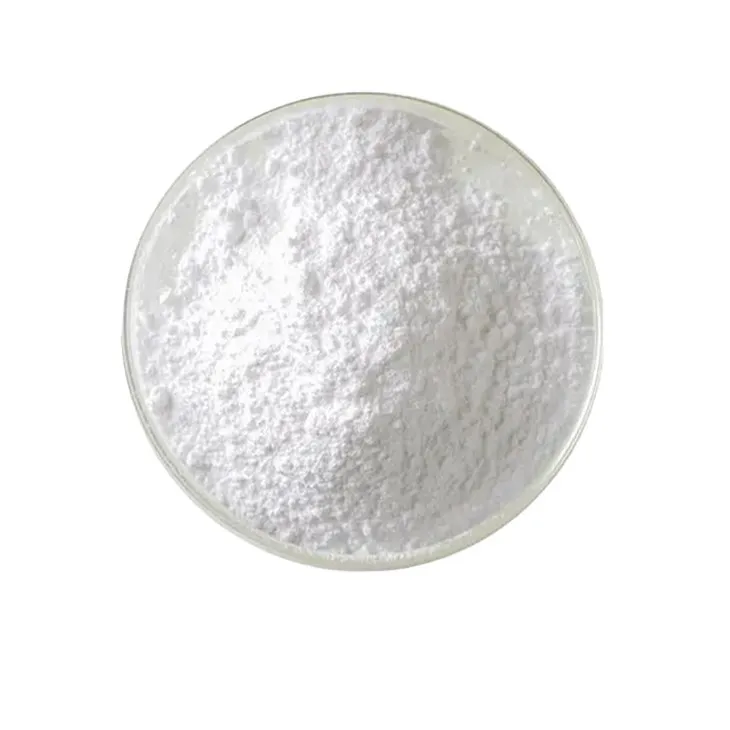- 0086-571-85302990
- sales@greenskybio.com
Unlocking the Secrets of Superpure Resveratrol Extract: A Comprehensive Guide
2024-08-02

1. Introduction
Superpure Resveratrol extract has emerged as a highly significant compound in multiple fields, including medicine, nutrition, and cosmetics. Resveratrol is a natural phenol with a plethora of potential health benefits. This comprehensive guide is designed to delve deep into the secrets of this remarkable extract.

2. Sources of Resveratrol
2.1 Grapes
Grapes are perhaps the most well - known source of resveratrol. The compound is found predominantly in the skins of grapes. Red grapes, in particular, contain relatively high levels of resveratrol. This is because red grapes are rich in polyphenols, and resveratrol is one of the most important members of this family. During the winemaking process, the skins of grapes are fermented, which can release resveratrol into the wine. However, the amount of resveratrol in wine can vary significantly depending on factors such as grape variety, growing conditions, and winemaking techniques.
2.2 Other Plants
Resveratrol is not exclusive to grapes. It can also be found in certain other plants. For example, Japanese knotweed (Polygonum cuspidatum) is a plant that contains resveratrol. In fact, it has been used in traditional medicine in some Asian cultures for centuries. The roots of Japanese knotweed are a rich source of resveratrol. Additionally, peanuts and some berries, such as blueberries and cranberries, also contain small amounts of resveratrol. These sources offer alternative options for obtaining resveratrol, especially for those who may not consume wine or grape - based products.

3. Antioxidant Properties of Resveratrol
One of the most remarkable features of resveratrol is its antioxidant properties. Antioxidants play a crucial role in maintaining the health of cells and organisms by combating oxidative stress.
3.1 Combating Oxidative Stress
Oxidative stress occurs when there is an imbalance between the production of reactive oxygen species (ROS) and the body's ability to detoxify them. ROS can cause damage to cells, proteins, and DNA, which can lead to a variety of health problems, including chronic diseases. Resveratrol acts as an antioxidant by scavenging free radicals, which are highly reactive molecules that contribute to oxidative stress. By neutralizing these free radicals, resveratrol helps to protect cells from damage and maintain their normal function.
3.2 Potential in Preventing Chronic Diseases
The antioxidant properties of resveratrol also make it a potential candidate for preventing chronic diseases. For example, it has been studied for its role in preventing heart disease. Resveratrol may help to reduce inflammation in the blood vessels, lower blood pressure, and improve lipid profiles. It has also been investigated for its potential in preventing cancer. Some studies suggest that resveratrol may be able to inhibit the growth of cancer cells and induce apoptosis (programmed cell death) in cancer cells. Additionally, resveratrol may have a role in preventing neurodegenerative diseases such as Alzheimer's and Parkinson's diseases by protecting neurons from oxidative damage.

4. Extraction Processes for Superpure Resveratrol
To obtain superpure Resveratrol extract, complex extraction processes are required.
4.1 Solvent Extraction
Solvent extraction is one of the commonly used methods. Organic solvents such as ethanol or methanol are often used. The plant material containing resveratrol is soaked in the solvent, which allows the resveratrol to dissolve into the solvent. The solvent is then separated from the plant material, and the resveratrol - rich solvent is further processed to obtain a more concentrated form. However, this method has some limitations. The choice of solvent needs to be carefully considered to ensure that it is safe for human consumption and does not leave harmful residues. Also, the extraction efficiency may vary depending on the type of plant material and the properties of the solvent.
4.2 Supercritical Fluid Extraction
Supercritical fluid extraction is a more advanced technique. In this method, a supercritical fluid, typically carbon dioxide (CO₂), is used as the extraction medium. CO₂ is in a supercritical state when it is above its critical temperature and pressure. In this state, it has properties similar to both a gas and a liquid, which makes it an excellent solvent for extracting resveratrol. Supercritical fluid extraction has several advantages. It is a relatively clean method as CO₂ is non - toxic and leaves no harmful residues. It also offers high extraction efficiency and can be used to obtain a highly pure form of resveratrol. However, the equipment required for supercritical fluid extraction is more expensive, which can limit its widespread use.

5. Impact on Human Health at the Cellular Level
Resveratrol has a profound impact on human health at the cellular level.
5.1 Mitochondrial Function
At the cellular level, mitochondria are the powerhouses of the cell, responsible for generating energy in the form of ATP. Resveratrol has been shown to influence mitochondrial function. It can enhance mitochondrial biogenesis, which is the process of creating new mitochondria. This can lead to increased energy production in cells. Additionally, resveratrol can protect mitochondria from oxidative damage, which helps to maintain their normal function and prevent cellular dysfunction.
5.2 Gene Expression
Resveratrol can also affect gene expression. It has been found to modulate the expression of certain genes involved in various cellular processes. For example, it can up - regulate genes that are associated with antioxidant defense mechanisms, which helps to enhance the cell's ability to combat oxidative stress. On the other hand, it can down - regulate genes that are involved in inflammation and cell proliferation, which may be beneficial in preventing chronic diseases such as cancer.
5.3 Cell Signaling Pathways
Cell signaling pathways play a crucial role in cellular communication and regulation. Resveratrol can interact with various cell signaling pathways. For example, it can activate the sirtuin pathway, which is associated with longevity and cellular stress resistance. By activating this pathway, resveratrol may be able to extend the lifespan of cells and protect them from various stressors. It can also interact with other signaling pathways such as the NF - κB pathway, which is involved in inflammation, and modulate their activity to promote cellular health.
6. Conclusion
Superpure Resveratrol extract is a fascinating compound with a wide range of potential health benefits. Understanding its sources, antioxidant properties, extraction processes, and impact on human health at the cellular level is crucial for unlocking its full potential. As research continues, it is likely that more secrets of this remarkable compound will be revealed, and it may find even more applications in the fields of medicine, nutrition, and cosmetics.
FAQ:
What are the main sources of superpure resveratrol extract?
Superpure resveratrol extract is mainly sourced from grapes, especially the skins of red grapes. Additionally, it can also be found in certain plants such as Japanese knotweed. These sources contain resveratrol which can then be extracted and purified to obtain the superpure form.
How do the antioxidant properties of superpure resveratrol extract work?
The antioxidant properties of superpure resveratrol extract work by neutralizing free radicals in the body. Free radicals are unstable molecules that can cause oxidative stress. Resveratrol can donate electrons to these free radicals, making them more stable and thus reducing oxidative stress. This, in turn, may help in preventing chronic diseases as oxidative stress is often associated with the development of such diseases.
What are the complex extraction processes for obtaining superpure resveratrol?
The extraction processes for obtaining superpure resveratrol are multi - step and complex. One common method involves solvent extraction, where a suitable solvent is used to dissolve resveratrol from the source material. Then, purification steps such as chromatography may be employed to separate resveratrol from other compounds and to ensure high purity. There are also techniques like supercritical fluid extraction which can be used to obtain a purer form of resveratrol.
How does superpure resveratrol extract impact human health at the cellular level?
At the cellular level, superpure resveratrol extract can have several impacts on human health. It may influence gene expression, for example, by activating certain genes related to antioxidant defense mechanisms. It can also interact with cellular signaling pathways, potentially modulating processes such as cell growth, apoptosis (programmed cell death), and inflammation. These cellular - level effects may contribute to its overall beneficial effects on health, such as reducing the risk of chronic diseases.
Is superpure resveratrol extract safe for long - term use?
While superpure resveratrol extract is generally considered safe for most people in moderate amounts, long - term safety still requires more research. In high doses, it may cause some side effects such as digestive problems. However, current evidence suggests that when used within the recommended dosages, it can be a part of a healthy lifestyle. But it's always important to consult a healthcare professional before starting long - term use.
Related literature
- Resveratrol: Sources, Bioavailability, and Potential Health Benefits"
- "The Chemistry and Biology of Resveratrol: A Minireview"
- "Superpure Resveratrol Extract: Production and Health - related Applications"
- ▶ Hesperidin
- ▶ citrus bioflavonoids
- ▶ plant extract
- ▶ lycopene
- ▶ Diosmin
- ▶ Grape seed extract
- ▶ Sea buckthorn Juice Powder
- ▶ Beetroot powder
- ▶ Hops Extract
- ▶ Artichoke Extract
- ▶ Reishi mushroom extract
- ▶ Astaxanthin
- ▶ Green Tea Extract
- ▶ Curcumin Extract
- ▶ Horse Chestnut Extract
- ▶ Other Problems
- ▶ Boswellia Serrata Extract
- ▶ Resveratrol Extract
- ▶ Marigold Extract
- ▶ Grape Leaf Extract
- ▶ blog3
-
Mulberry leaf Extract
2024-08-02
-
Garcinia Cambogia Extract
2024-08-02
-
Agaricus Blazei Extract
2024-08-02
-
Propolis Extract Powder
2024-08-02
-
Saponin Extract
2024-08-02
-
Troxerutin
2024-08-02
-
Pueraria Lobata Extract
2024-08-02
-
Yam Extract
2024-08-02
-
Saffron Extract Powder
2024-08-02
-
Phyllanthus Emblica Extract
2024-08-02





















